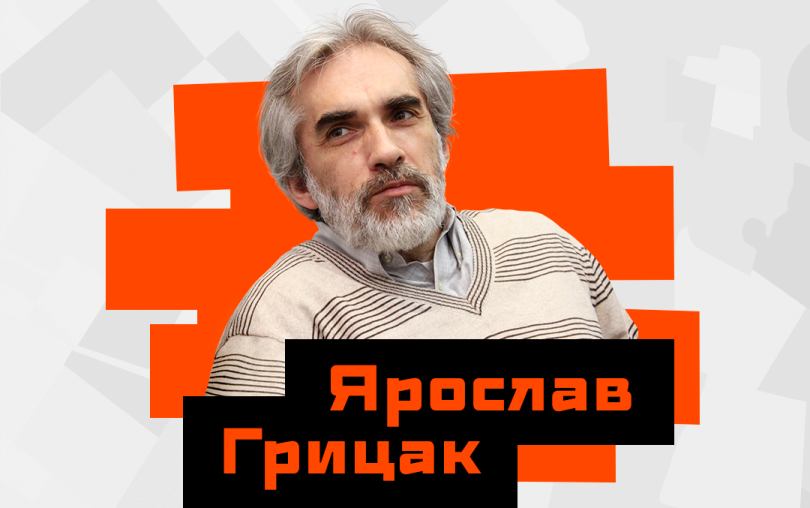What History is Capable Of
Oleksandr Yanov, the former Soviet dissident and American historian, died four days before the start of the war. Dmitriy Bykov wrote a poem to commemorate his death, which includes the lines:
…Professor Yanov
Predicted everything, but he didn’t see it through to the end.
Bykov meant that Yanov was a rare type of historian, one of the few who truly understood the complex mechanisms of Russian history. Yanov referred to this mechanism as the „Russian pendulum.“ He strongly disagreed with the notion that ancient Rus did not fit into the framework of European history, even though its extension far north, including the Muscovite first and Russian empire later, made attempts to modernize and become more like other nations. However, each of these attempts at reform was followed by long periods of counter-reform and harsh repression of the opposition, as well as military aggression against neighboring nations.
Yanov identified a pattern in Russian history: a brief period of reform would be followed by a much more extended and more severe period of counter-reform characterized by violent repression and aggression. This pattern repeated itself twelve times throughout Russian history, from Ivan III to Putin. Yanov predicted that Putin’s rule would mark this cycle’s end, with Russia’s final normalization as a modern European state. He believed that the Russian pendulum would stop swinging and Russia would finally achieve lasting stability and normalcy.
Yanov drew comparisons between modern-day Russia and the Weimar Republic but did not believe that Putin would become a new Hitler or establish a fascist regime. According to Yanov, Putin lacked the strength and resources to do so. Furthermore, the thirty-year post-communist period of transformation in Russia resulted in the creation of institutions that would prevent such a scenario from occurring.
Yanov died at the age of 92 and remained conscious until the end of his long life – one can only imagine the deep depression he must have felt before his death.
The failure of Yanov’s prediction begs the question of what role historians and history can actually play. One of my colleagues, a Polish historian, jokes that history should serve the simple purpose of helping viewers identify the historical period and figures depicted in television dramas. Another colleague, a prominent Ukrainian historian, takes a more severe view of the matter. I recall his agitated reaction to a news report about another regime’s crackdown on the opposition. He paced nervously around the room, exclaiming, „We write books, but tanks still continue to crush people!“
This issue is particularly pressing in light of the ongoing Russian invasion of Ukraine, which has seen Russian tanks rolling into Ukrainian territory, and the Russian government and army committing atrocities against Ukrainians that qualify as genocide. Historians have long aimed to turn history into a rigorous scientific discipline that can uncover laws and patterns and even make predictions based on past events. Sadly, these ambitions and hopes now seem shattered. It’s not that historians are incapable researchers; instead, many now believe that the past is a jumbled collection of coincidences, rendering the search for meaning futile. In such circumstances, historians are relegated to serving as propaganda fodder at worst and at best, exploring historical imagination and memory.
The conversation about the role of history can also be approached from the opposite angle – that is, how false narrative can undermine political plans. A prime example of this is the failure of Putin’s Ukrainian policy. He justified his invasion of Ukraine with historical arguments, claiming that the existence of the Ukrainian nation was a historical mistake that could only be rectified by erasing it from the political map. According to his argument, the Ukrainian people were merely an invention of a handful of nationalist or Nazi figures, propped up by the West to weaken Russia’s power. By erasing Ukraine’s „invented“ nation, Putin hoped for a swift, victorious war, with the capture of Kyiv taking just three or four days.
It’s worth noting that Putin’s fantasies didn’t develop out of thin air. In fact, they are a recognizable reflection of what Russian historians have written about Ukraine, albeit caricatured. For instance, Alexei Miller’s monograph „The Ukrainian Question in the Russian Empire“ argues that the Ukrainian movement was weak and lacked promise.
It’s worth noting that Miller is also a critic of Yanov. He accuses Yanov of mythologizing Europe as a collection of all things good, while in reality, Europe shares many of the same historical traits that are attributed to Russia. While Yanov endeavors to elevate Russia to the level of Europe, Miller attempts to bring Europe down to Russia’s level.
Miller and Yanov differ fundamentally in their approaches to studying empire. While Miller focuses on what was written and thought about the empire, Yanov delves into the political system at its core – that is, the hardware rather than the software. This distinction gives Yanov’s diagnosis greater accuracy, as he highlights Russia’s inability to enact political reforms that would lead to a European-style democracy, in contrast to the successful Western model. Consequently, power in Russia remains absolute regardless of whether it is wielded by Moscow tsars, Russian emperors, Communist Party general secretaries, or present-day presidents.
Yanov’s only mistake was his excessive optimism, yet his diagnosis remains valuable despite his inaccurate prognosis. The Ukrainians, however, are proving him wrong by effectively halting the „Russian pendulum“ and resisting Putin’s regime, with a chance of ultimately toppling it. In any case, Ukrainians are not just „any nation from nowhere.“ On the contrary, they are a genuine force that can eliminate the Russian threat to the world. Through their struggle, Ukrainians create meanings that were once thought not to exist. And if there are meanings in their struggle, then there is a sense to study them both in the present and the past.
This gives us historians hope for a better historical science.
Translated by Yulia Lyubka and Kate Tsurkan











